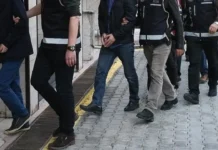Turkey’s Constitutional Court has ruled that the cancelation of passports of people who were expelled from public service based on government decrees issued in the aftermath of a failed coup was unconstitutional, Turkish Minute reported, citing the Gazete Duvar news website reported.
The court’s ruling concerns more than 130,000 people who were removed from public service in the aftermath of the coup attempt on July 15, 2016 under the pretext of an anti-coup fight and had their passports cancelled.
Following the coup attempt, the Turkish government declared a state of emergency, which remained in force for two years, and carried out a massive purge of state institutions, summarily dismissing more than 130,000 public servants including academics, teachers, diplomats and police officers with emergency decree-laws subject to neither judicial nor parliamentary scrutiny for alleged membership in or relationships with “terrorist organizations.”
The top court made its ruling on an application filed at the court by the main opposition Republican People’s Party (CHP) demanding the cancellation of some articles of a government decree that went into force after approval by parliament in February 2018.
The court said revoking the passports of public servants who were expelled from their jobs imposed restrictions on their freedom of movement, guaranteed in Article 15 of the Turkish Constitution, at a far greater level than required by the circumstances of the state of emergency.
Former civil servants were not only fired from their jobs; they were also prohibited from working again in the public sector and getting a passport.
The court also said the expulsion of people from public service without a trial and conviction of a crime contravenes the presumption of innocence even during a state of emergency.
The post-coup crackdown mainly targeted followers of the Gülen movement, a faith-based group inspired by Muslim cleric Fethullah Gülen, whom the Turkish government accuses of orchestrating the abortive putsch.
The crackdown also targeted political opponents of the government, Kurdish activists and human rights defenders, among others. Gülen and the movement strongly deny involvement in the abortive putsch or any terrorist activity.
Some purge victims who wanted to flee the country to avoid the post-coup crackdown and took dangerous journeys across the Evros River in northwestern Turkey or the Aegean Sea perished on their way to Greece. They had to leave the country illegally due to the lack of valid passports.















